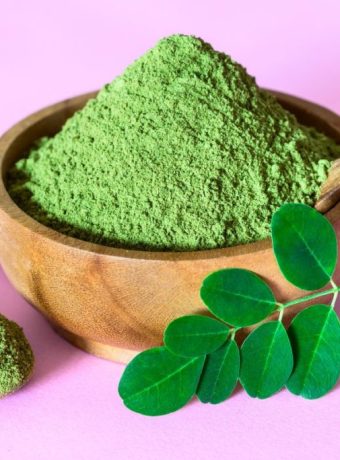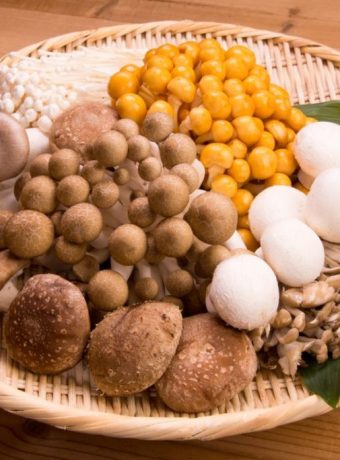7 Types of Mushrooms for Better Health
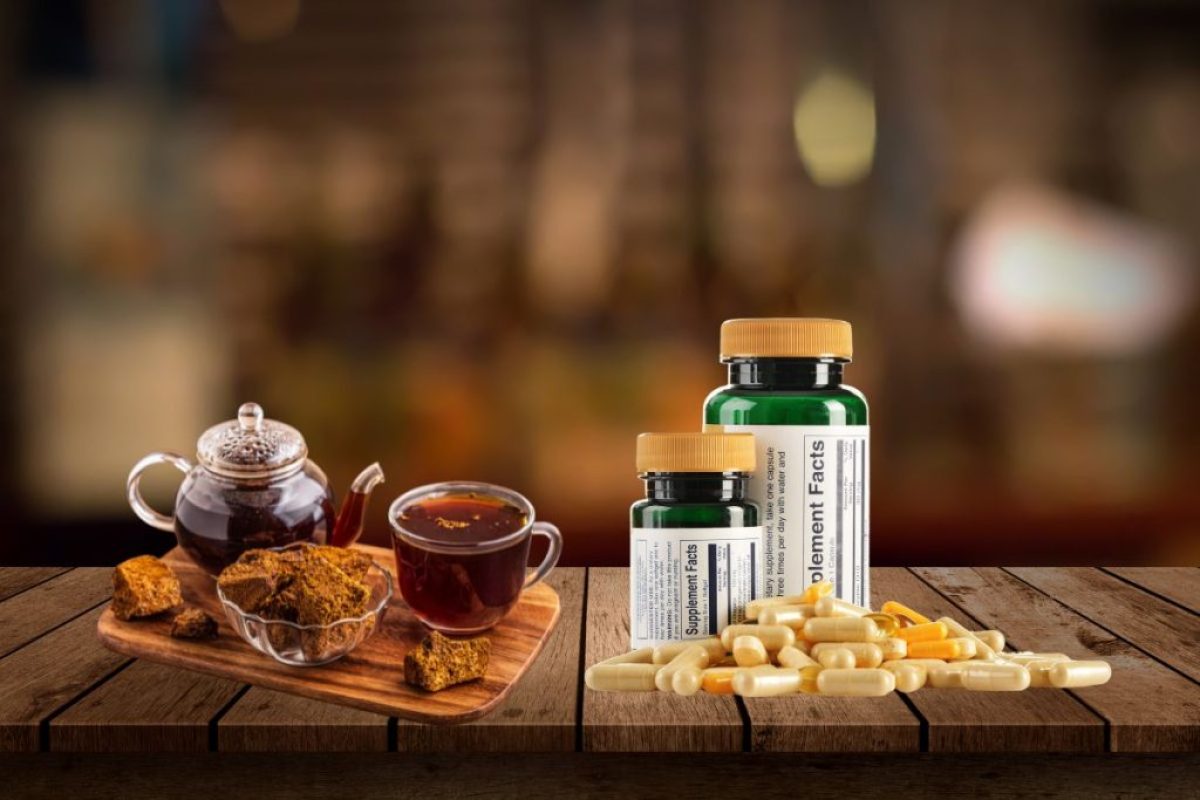
Last Updated on May 23, 2024 by Lauretta Iyamu, PharmD
Are you curious about how mushroom supplements can help your health? With so many options, it’s easy to get overwhelmed. But don’t worry; this post will discuss the most popular types of mushrooms and their benefits.
From improving your immune system to helping with stress, there’s a mushroom for everyone. Learn how these medicinal mushrooms can support your well-being.
What Are Mushroom Supplements?
Mushroom supplements come from different fungi (mushroom species) and are available in forms like:
- Capsules
- Powders
- Extracts
- Tea
They contain special compounds that are used in alternative and complementary medicine to support overall health.
What Are the Types of Mushroom?
Mushroom are rich in nutrients and antioxidants. They can help improve your immune health, support brain function, and increase your energy. Here are the top types of mushrooms and their benefits.
1. Reishi Mushroom
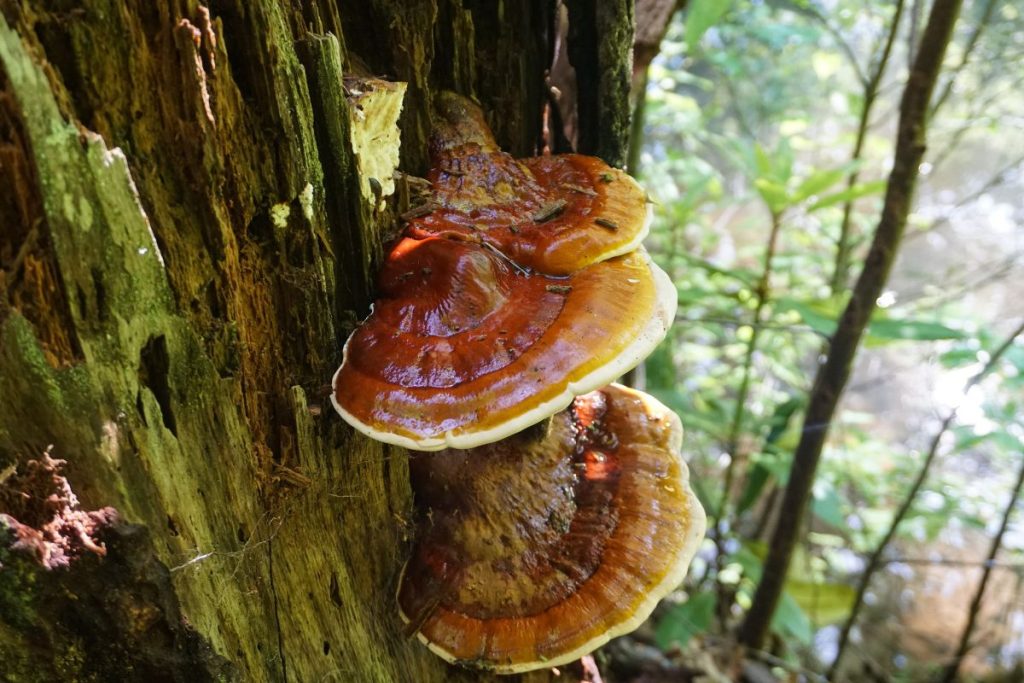
Reishi mushrooms, known as Ganoderma lucidum, are famous for their health benefits. Used in traditional medicine for centuries, they offer a range of benefits.
Health Benefits of Reishi are:
- Strengthen the immune system
- Reduce stress and improve sleep
- Support liver health
How to Use Reishi
Reishi supplements come in powder, capsule, or tea form.
Start with a small dose and gradually increase to avoid potential side effects.
2. Lion’s Mane Mushroom
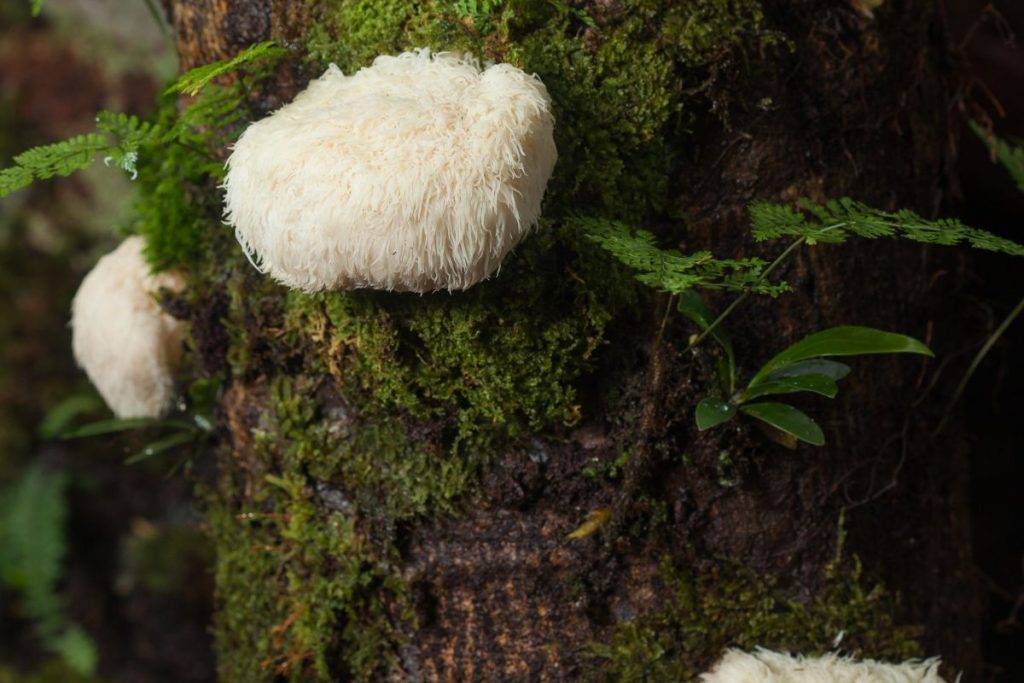
Lion’s Mane, or Hericium erinaceus, is a unique mushroom known for its brain-boosting properties. It looks like a fluffy white mane and is great for mental health.
Lion’s Mane helps:
- Improved cognitive function
- Improve memory and focus
- Reduce anxiety and depression symptoms
How to use Lion’s Mane Mushroom supplements:
Add Lion’s Mane powder to coffee or smoothies, or take it in capsule form. Consistent use can help maintain its cognitive benefits.
3. Chaga Mushroom

Chaga mushrooms, or Inonotus obliquus, grow on birch trees and are known for their powerful antioxidant properties.
Chaga mushrooms:
- Fight inflammation
- Protect against oxidative stress
- Support overall health
How to use Chaga Mushroom:
Chaga mushroom is commonly consumed in tea, tincture, or capsule form.
Adding it to your daily routine can support overall wellness.
4. Cordyceps Mushroom
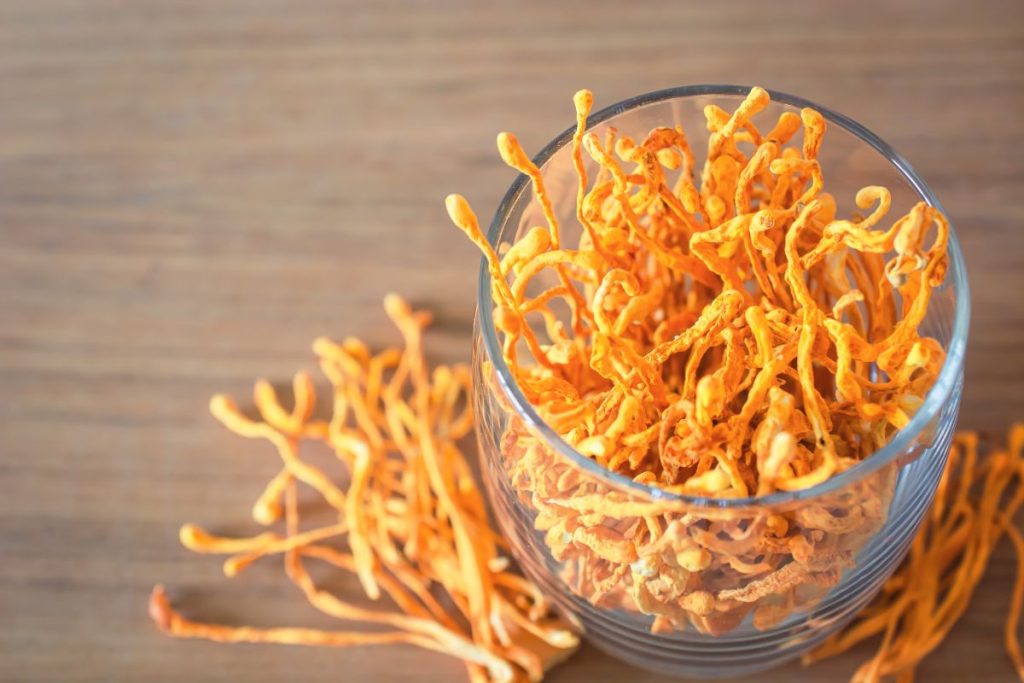
Cordyceps mushrooms are a type of parasitic fungus known for their energy-boosting properties. They have been used traditionally to enhance physical performance and stamina.
Cordyceps are beneficial for:
- Increasing energy levels
- Enhancing athletic performance
- Supporting respiratory health
Best Ways to take Cordyceps mushroom:
Cordyceps supplements are available in powder, capsule, or extract supplement form. They can be taken before workouts for an extra energy boost.
5. Turkey-tail mushroom
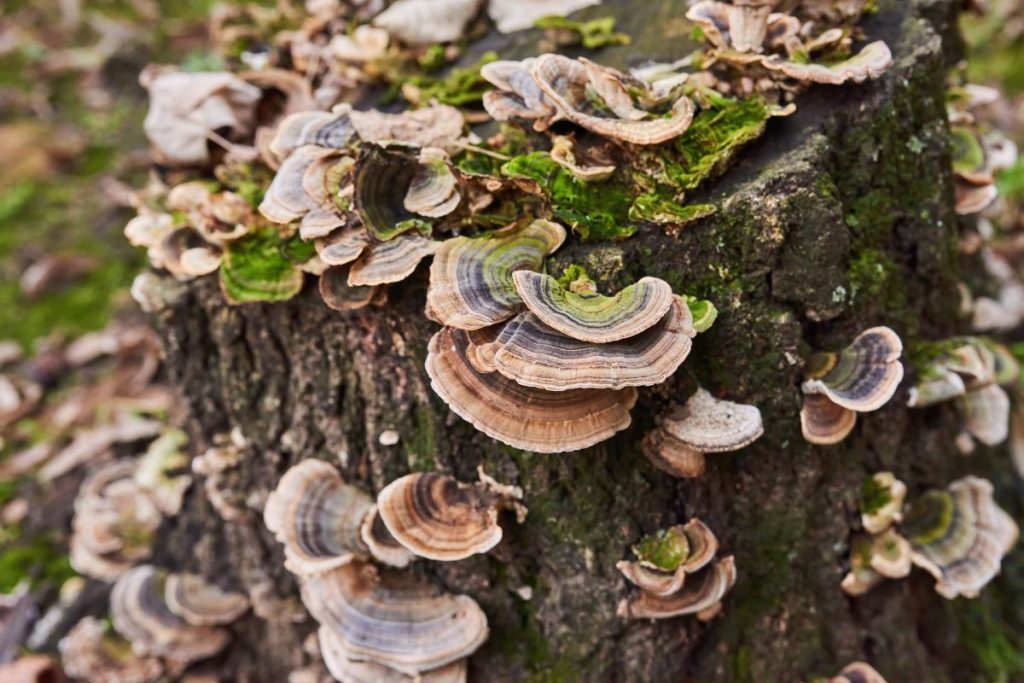
Turkey Tail, or Trametes versicolor, is a colorful mushroom that supports immune health and is rich in antioxidants.
Benefits of Turkey-tail mushrooms:
- Strengthen the immune system
- Support gut health
- Promote overall wellness
How to use Turkey-tail mushrooms:
Turkey Tail can be taken as a tea, capsule, or extract. Regular consumption can help maintain a robust immune system.
6. Shiitake Mushroom
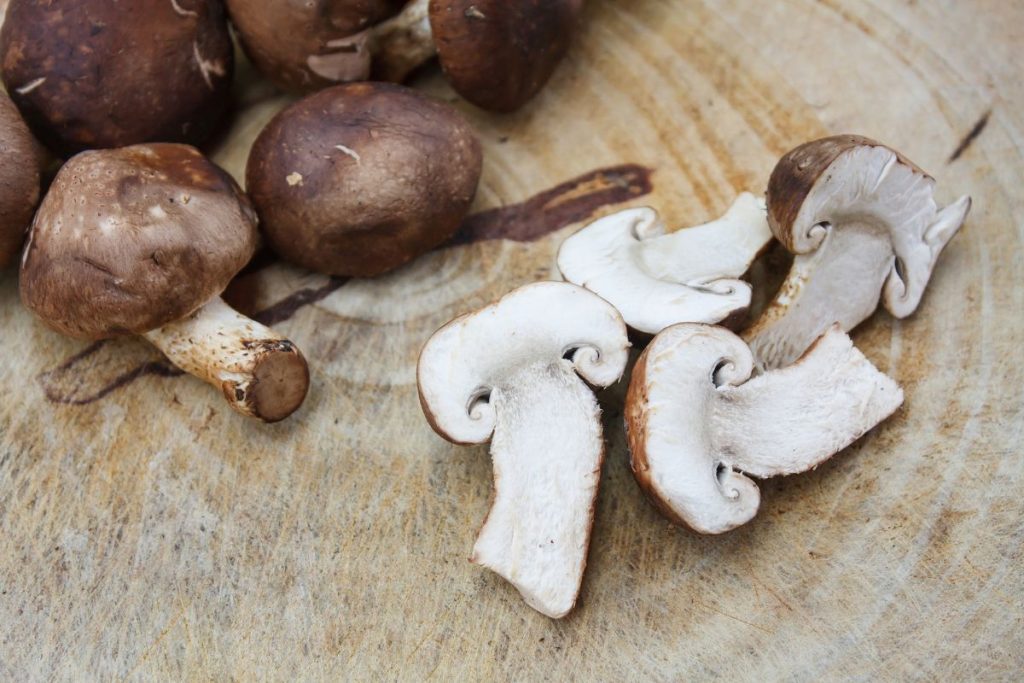
Shiitake mushrooms are a culinary delight and offer numerous health benefits.
Nutritional benefits of Shiitake mushrooms:
- Support heart health
- support immune health
- Provide essential vitamins and minerals
How to use Shiitake mushrooms
You can add shiitake mushrooms to your meals or take them as supplements in powder or capsule form.
7. Maitake Mushroom
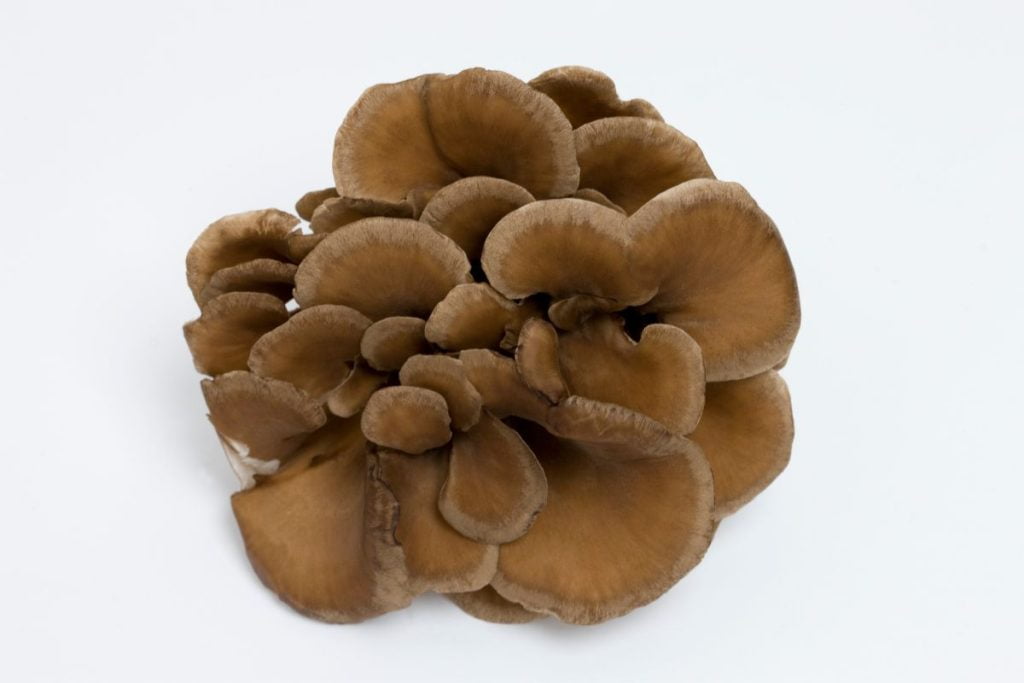
Maitake, also known as Grifola frondosa, is another powerful medicinal mushroom with various health benefits.
Health benefits of Maitake mushrooms:
- Help regulate blood sugar levels
- Support immune health
- Support cardiovascular health
How to use Maitake Mushroom:
Maitake can be enjoyed in culinary dishes or taken as a supplement, often available in powder or capsule form.
How to Choose the Right Mushroom Supplement
Selecting the right mushroom supplement depends on your health goals and product quality.
Here are some tips to help you choose the best mushroom supplements to get potential health benefits for your needs.
Health goals
Identify what you hope to achieve with the supplement.
A mushroom supplement can help strengthen your immune system, enhance cognitive function, or improve energy levels.
Quality
Ensure the supplements you choose are:
- Organic and free from contaminants
- Made from the fruiting body, not just mycelium
- Third-party testing for quality assurance
It is important to select high-quality mushroom supplements to maximize their benefits.
Potential Side Effects and Precautions
While mushroom supplements are generally safe, it’s important to be aware of potential side effects and take necessary precautions.
Possible side effects include:
- Digestive upset
- Allergic reactions
- Interaction with medications
Always start with a small dose and monitor your body’s response. Consult a healthcare provider before starting any new supplement, especially if you have existing health conditions or are taking other medications to ensure safety.
Conclusion
Mushrooms are amazing and can make your meals tastier and healthier. Each type has its own flavor and benefits, from common mushrooms like button and portobello to exotic ones like shiitake and maitake. Remember to store them in a paper bag, clean them carefully, and be cautious when picking wild mushrooms.
Frequently Asked Question
Q: What are the most common types of edible mushrooms?
A: The most common types are button mushrooms, cremini mushrooms, and portobello mushrooms. They are easy to find in grocery stores and can be used in many recipes.
Q: How do I cook mushrooms to bring out their flavor?
A: Sautéing mushrooms in a hot pan with a bit of oil or butter enhances their natural flavors. You can also grill or roast them for a smoky taste.
Q: What are some health benefits of eating mushrooms?
A: Mushrooms are low in calories but rich in nutrients like vitamins, minerals, and antioxidants. They can help strengthen your immune system and support overall health.
Q: How can I store mushrooms to keep them fresh?
A: Store mushrooms in a paper bag in the refrigerator. Avoid using plastic bags, as they trap moisture and cause mushrooms to spoil quickly.
Q: How can I tell if a mushroom is poisonous?
A: Always be cautious when foraging wild mushrooms. Use reliable guides and consult experts. Symptoms of mushroom poisoning include nausea, vomiting, and abdominal pain. If in doubt, don’t eat it.
References
- Chang, Shu-Ting, and Philip G. Miles. Mushrooms: Cultivation, Nutritional Value, Medicinal Effect, and Environmental Impact. CRC Press, 2004.
- Valverde, Maria Elena, Teresa Hernández-Pérez, and Olga Paredes-López. Edible mushrooms: improving human health and promoting quality life. International Journal of Microbiology (2015).
- Wasser, Solomon P. Medicinal mushrooms as a source of antitumor and immunomodulating polysaccharides. Applied Microbiology and Biotechnology, vol. 60, no. 3, 2002, pp. 258-274.
- Roupas, Peter, et al. The role of edible mushrooms in health: Evaluation of the evidence. Journal of Functional Foods, vol. 4, no. 4, 2012, pp. 687-709.
- Kalac, Pavel. A review of chemical composition and nutritional value of wild-growing and cultivated mushrooms. Journal of the Science of Food and Agriculture, vol. 93, no. 2, 2013, pp. 209-218.

